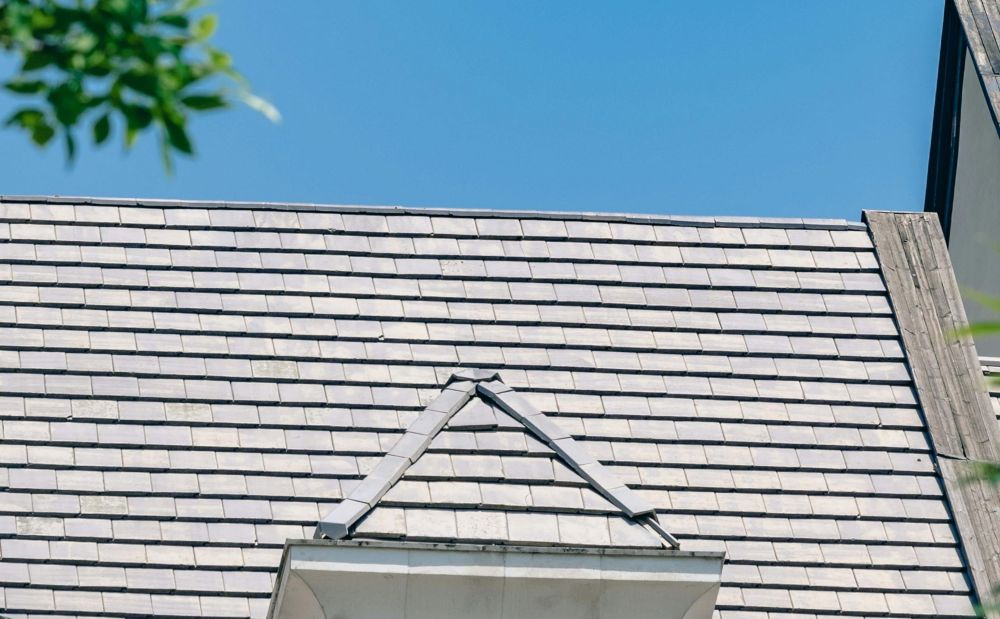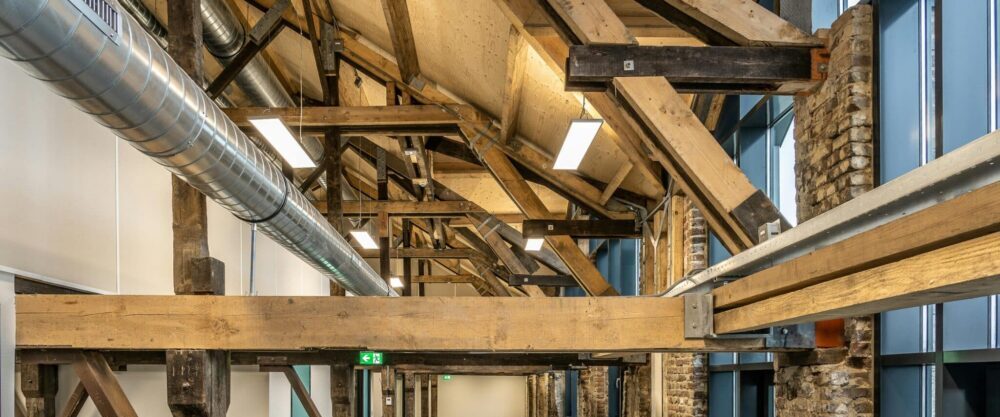Top-Tier Residential Roofing Services: Building Trust

Protecting your home starts at the top—with a strong, well-built roof. At Gordy Roofing, we bring decades of expertise to deliver expert residential roofing services that provide long-term durability, weather resistance, and curb appeal. Whether replacing an old roof, building a new home, or needing urgent repairs, our licensed professionals are here to help with quality craftsmanship and materials you can trust.
What Residential Roofing Services Do We Offer?
At Gordy Roofing, we understand that your home is one of your most essential investments. That’s why we offer a comprehensive range of residential roofing services designed to protect, enhance, and prolong the life of your roof—no matter its style, material, or age. From new roof installations to emergency repairs, every project is completed with high-quality craftsmanship, attention to detail, and a focus on long-term durability.
New Roof Installation
Whether you’re building your dream home or replacing an outd
ated roof, residential new roof installation is a major investment—and it deserves expert attention. At Gordy Roofing, we bring over 50 years of experience to every roofing project, delivering high-quality systems that combine performance, curb appeal, and long-term value.
Roof Repairs
Even a small leak can lead to significant water damage if left unchecked. Our roofing repair services cover many issues—from missing or broken shingles to flashing damage, roof vent issues, and structural deterioration. We act quickly to assess the damage, provide honest recommendations, and carry out lasting repairs that restore your roof’s functionality and keep your home dry and secure.
Roof Replacements
A full roof replacement may be the best option if your roof is over 20 years old, has widespread damage, or no longer performs well. We handle the entire process from tear-off to installation, ensuring minimal disruption and maximum quality. You’ll get access to advanced roofing materials with greater wind resistance, better insulation, and enhanced curb appeal—all backed by manufacturer and workmanship warranties.
Emergency Roofing Services
Storms, falling branches, or unexpected leaks can strike at any time. That’s why we offer 24/7 emergency roofing services. Our rapid response team arrives quickly to assess the damage, secure the area, and begin temporary or permanent repairs, ensuring your home and belongings are protected from further harm.
Roof Inspections
Regular residential roof inspections are a smart way to stay ahead of costly damage. Our thorough, professional roof evaluations, visual assessments, moisture detection tools, and structural analysis help us detect hidden issues early. Whether you’re filing an insurance claim, preparing to buy or sell a home, or maintaining your warranty, our detailed inspection reports offer peace of mind and actionable insights.
Preventive Roof Maintenance
Regular residential roof maintenance is the key to a long-lasting roof. Our seasonal and annual maintenance plans include debris clearing, gutter checks, sealant replacement, and early detection of wear and tear. By addressing minor concerns before they become expensive repairs, we help homeowners maximize the life and performance of their roof system.
Why Choose Gordy Roofing for Your Home?

When it comes to your home, you deserve more than just a roof—you deserve a roofing partner who values quality, transparency, and lasting protection. At Gordy Roofing, we treat every home like it’s our own. With more than five decades of proven success, we’ve built our reputation on integrity, craftsmanship, and a personal commitment to every client we serve. We don’t just build roofs, we build trust.
Here’s why homeowners choose us time and again:
✔ Licensed & Insured Roofing Experts – Our team is certified, fully insured, and trained to meet all residential roofing codes and safety standards.
✔ Over 50 Years of Trusted Experience – We bring generations of hands-on knowledge to every roofing project, big or small.
✔ Superior Materials from Top Manufacturers – We partner with leading brands like GAF, Owens Corning, and CertainTeed to give your roof unmatched durability and performance.
✔ Clear Communication and Transparent Estimates – No surprises here. We explain everything upfront and keep you informed every step of the way.
✔ Affordable Financing Options Available – Need flexibility? We offer financing plans that help you protect your home without straining your budget.
✔ Commitment to Long-Term Performance and Beauty – We don’t cut corners. Your new roof will be built to stand up to the elements and enhance your home’s curb appeal for decades to come.
Our Residential Roofing Materials
Every home is unique—and so are its roofing needs. That’s why Gordy Roofing offers a variety of high-performance materials tailored to your style, budget, and environment. Whether you’re aiming for classic charm, bold design, or maximum efficiency, we have a solution that fits.
Asphalt Shingles
Asphalt shingles are a top choice for affordability and reliability. They’re available in a wide range of colors and textures. They’re easy to maintain and offer great performance for homes of all sizes. We install architectural shingles for added strength and dimension.
Metal Roofing
Built to last 40–70 years, metal roofing is an excellent investment for homeowners who want exceptional durability and energy efficiency. It resists hail, wind, and fire and reflects sunlight to help reduce energy bills.
Tile Roofing
Clay and concrete tile roofing offers a timeless look with serious protection. Ideal for homeowners who want long-lasting elegance, tile roofs stand up well to harsh climates and require minimal maintenance.
Designer Shingles
If you’re after premium aesthetics with added strength, designer shingles provide enhanced wind resistance, weather protection, and standout curb appeal. Perfect for homeowners looking to make a statement.
What to Expect When You Work with Gordy Roofing
We understand that a roofing project can feel overwhelming. That’s why we’ve designed our process to be easy, efficient, and completely focused on your satisfaction. Here’s how it works:
Free Consultation: We begin with a no-obligation conversation to learn more about your goals, preferences, and budget. Our knowledgeable team will answer your questions and recommend the best solutions.
Roof Inspection & Transparent Estimate: Next, we perform a thorough roof inspection to assess your roof’s condition. Based on our findings, we’ll provide a clear, detailed estimate that outlines materials, labor, project timeline, and warranty options—no hidden fees.
Professional Installation or Repair: Once approved, our licensed roofers get to work using time-tested techniques and precision craftsmanship. We follow all manufacturer specifications to ensure your warranty stays intact and your roof delivers lasting performance.
Final Walkthrough & Cleanup: After the work is done, we walk the site with you to ensure everything meets your expectations. We clean up thoroughly, removing nails, debris, and materials so your yard looks just as good as your new roof.
Ongoing Support & Maintenance: Our relationship doesn’t end after installation. We’re here for routine maintenance, future inspections, storm repairs, or upgrades. You can count on Gordy Roofing to be your long-term roofing partner.
Invest in Your Home with Confidence
Your roof is more than just shingles and nails—it’s your home’s first line of defense. Investing in a high-quality residential roofing system improves property value, energy efficiency, and peace of mind. At Gordy Roofing, we combine decades of experience with the latest products and techniques to ensure your roof protects your home for years.
Contact us today to schedule your free residential roofing consultation. Let Gordy Roofing give your home the protection it deserves with dependable roofing solutions built to last.
Residential Roofing Tips and Guides
What Are the Best Roofing Materials for Sulphur Springs Homes in Wind-Prone Areas?
Living in Sulphur Springs, Texas, means dealing with strong winds, storms, and unpredictable weather. Your roof plays a crucial role in protecting your home from these elements, so choosing a wind-resistant roofing material is essential. At Gordy Roofing, we specialize in installing durable roofing systems that can withstand high winds, providing long-term protection and energy efficiency. Below, we explore the best roofing materials for [...]
Why Is Proper Attic Ventilation Essential for Residential Roof Longevity?
Attic ventilation plays a crucial role in the overall health of your home’s roofing system. While it’s often overlooked, proper attic ventilation can significantly extend your roof’s lifespan, enhance energy efficiency, and prevent costly damage caused by heat and moisture buildup. At Gordy Roofing, we stress the importance of ventilation in maintaining a durable, energy-efficient, and well-protected home. What Is Attic Ventilation, and Why [...]
How to Choose Between Asphalt and Tile Roofing for Your Home
When it’s time to replace or install a new roof, choosing between asphalt and tile roofing is one of your most important decisions. Both options come with their own set of advantages and considerations. Here at Gordy Roofing, we’re here to help you navigate the pros and cons of each material to make an informed decision for your home. What Are the Benefits of [...]
How to Ensure the Longevity of Your Residential Roof in East Texas
In the distinctive climate of East Texas, marked by its hot summers, sporadic heavy rains, and the potential for severe weather, the importance of a resilient and well-maintained roof cannot be overstated. A roof in good condition not only ensures the safety and comfort of your home but also contributes to its overall value. Gordy Roofing, with deep expertise in the East Texas region, brings [...]
The Cost of Roofing
The Cost of Roofing in Longview: What to Expect When You Need Residential Roofing Services The roof is one of the most essential parts of your home, and when it comes time for repairs or a replacement, the costs can seem overwhelming. This comprehensive guide aims to demystify the roofing cost in Longview by breaking down various factors contributing to the overall expenses. Whether patching [...]
Reasons To Call A Residential Roofer
Reasons To Call A Residential Roofer in Texas Keeping your roof in top condition is crucial if you own a home. Signs of damage or wear and tear, like buckling shingles or water damage, should prompt you to enlist a professional residential roofer. Furthermore, other signs that point to you needing help include damage to the roof or ceiling, rusting or rotting shingles, gaps or [...]
The Benefits of Hiring a Professional Residential Roofing Contractor
The Benefits of Hiring a Professional Residential Roofing Contractor If you have issues with your roof, consider going up there and taking care of it yourself. However, this is never a good idea. Looking from a safety perspective, you should stay off the roof. You could do more damage to your roof than you already have. Trust us; we have seen some damaging patch jobs [...]
Why to Choose a Residential Roofing Contractor for Your Home
Why You Should Choose a Residential Roofing Contractor Nearly all homes will eventually need to have their roofs repaired or replaced. So you might ask this crucial question: Which roofing company should I hire? Who can you rely on to provide you with that information? A recent marketing study found that 88% of respondents trusted good-quality recommendations from their friends, family, and neighbors. Always check [...]
The Best Residential Roofing Product
Whether you're building a new home or updating your current one, choosing the right roofing product can make a huge difference. You need to choose the right type of roof products that will stand up to the weather and the elements while maintaining a high level of durability. The Best Residential Roofing Product for Texas Wood shingles Whether you are a homeowner looking for a [...]
Do Roofers Have to Be Licensed in Texas
A roofing license is an excellent way to show clients that your firm is reputable, trustworthy, and capable. Roofers, however, are not required to be licensed in most states, including Texas. While Texas may not have state-level licensing regulations, some local jurisdictions, such as cities or counties, may have licensing, registration, or permitting requirements for roofing contractors. These local regulations may include obtaining a permit [...]










